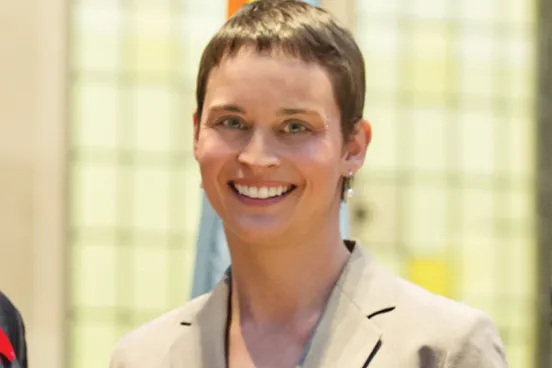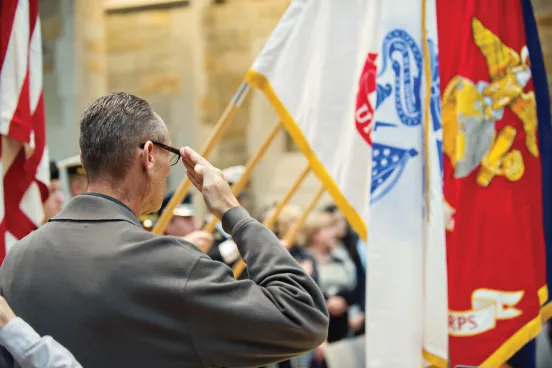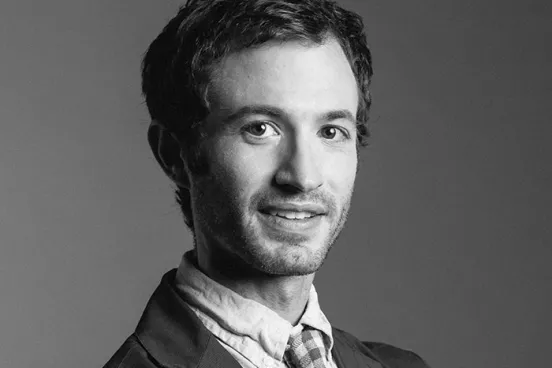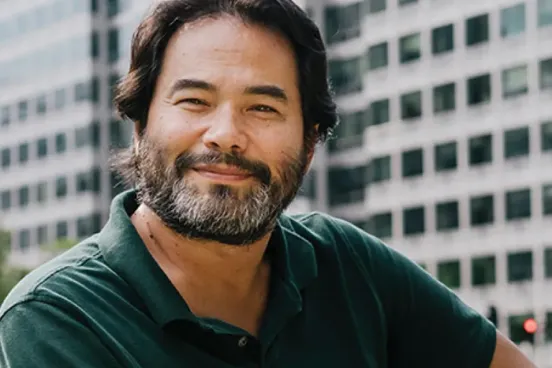
Gabriel Lopez, who graduated from Michigan Law in December, isn’t sure what awaits him at his first law firm. But thanks to a new one-credit course taught last fall by Bob Hirshon, he’ll have a pretty good idea.
Hirshon, the Frank G. Millard Professor from Practice and the Law School’s special counsel on developments in the legal profession, championed the new course, Business Development for Associates, to help prepare Michigan Law graduates for their first jobs in a rapidly changing legal profession.
“This is how to be a lawyer, which to me is absolutely fascinating,” Lopez says. “Because it’s not enough to just know the law; you have to know how to produce the work and what you should do for the partner who assigned it.”
In one’s first year at a firm, adds Lopez (who recently passed the bar in Florida), it’s vital to make yourself indispensable. “As an associate, your number-one client is the partner you’re working for,” says Lopez. “Maybe it’s common sense, but when you internalize it, when you treat that partner as your primary client, it acts as a guiding principle for how you deliver the work.”
That means dotting the I’s and crossing the T’s, he says. It means making that partner’s life as easy as possible—which ultimately benefits the client by allowing partners to devote their efforts to higher-level strategic thinking.
For Hirshon, a former American Bar Association president, 30-year practitioner, and law firm CEO, creating the course was in keeping with Michigan Law’s philosophy of preparing students to make a running start when they arrive at their first firms.
“We begin the course by stating something most students already know: The legal world is undergoing dramatic change,” Hirshon says. Among those changes: Few firms still have lockstep compensation systems based upon seniority. “More and more, quite frankly, it’s not necessarily how smart you are, but how big your book is, how many clients you’re bringing in,” Hirshon says.
That discussion establishes the importance of the second portion of the course, which draws on the experience of large-firm partners Hirshon says have been “incredibly successful in building their books of business.” Those partners—including U-M Regent Laurence B. Deitch, ’72, member at Bodman PLC in Detroit, and David Foltyn, ’80, chairman and CEO of Honigman Miller Schwartz and Cohn LLP—visit the class and share their ideas about how individual associates can make the most of their strengths while minimizing any weaknesses.
“What comes out of that conversation is this: There is no Yellow Brick Road,” Hirshon says. “As a result, different associates will adopt different approaches. But what’s equally important is that each associate can learn and adapt and become better at business development.”
Students also take serious stock of their strengths and weaknesses, then develop detailed individual marketing plans, complete with timelines and benchmarks. Are you a strong writer? Plan, with the firm’s permission, on turning some of your memos into articles. Maybe you’re not a great writer, but you’re a strong speaker. Make those oral presentations within the practice group.
Either way, the goal is to become the go-to associate, then take those ideas and skills beyond the firm and into the community where they can be leveraged—such as at young lawyers’ groups, trade associations, synagogues, and churches.
Finally, Hirshon says, the class relies on simulations. He worked with Gerry Riskin of Edge International, a firm that helps law firms around the world master business development, to modify simulations normally used to help new associates learn business development strategies. Students learn about active listening, meeting the expectations of clients (who are, in this case, the partners), and giving elevator speeches.
The process of building the new class—one that may be unique in top-tier American legal education—helped remind Hirshon about the kind of legal education available at Michigan Law.
“Look, some faculties might ask, ‘What the heck are we doing, teaching this type of course?’” Hirshon says. “Indeed, I want to compliment Dean Mark West and Monica Hakimi [associate dean for academic programming], who showed a real willingness to be innovative. They understand that the legal profession is evolving.”
So do law students like Lopez. “Personally, I think a class like this should be required,” Lopez says. “If the end goal of law school is turning out effective lawyers, they have to know how to be good lawyers, and this class teaches that. So you know the law, but now you can go out there and actually apply your skills to not only advance your career, but to service your clients effectively.”







